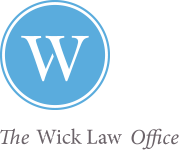Yes. A federal employee can bring a claim for so called third-party retaliation, which has also been referred to as third-party reprisal, retaliation by association or associational reprisal.
The EEOC has repeatedly explained that it unlawful to retaliate against an employee due to their association with another individual. The EEOC Enforcement Guidance on Retaliation and Related Issues, No. 915.004 (August 25, 2016) explains that an employer may not take action against an employee for engaging in protected activity by harming a third party who is closely related to or associated with the employee. Under such circumstances, both the employee who had engaged in prior protected activity and the third party who was harmed as a result may bring claims. See Kristie L. v. United States Postal Service, EEOC App. No. 2020001506 (March 12, 2020).
Third-party retaliation claims are available to a third party who has a close relationship with the individual who engaged in the protected activity. In fact, the “EEOC's Compliance Manual, § 8-II.C.3 (May 20, 1998), expressly prohibits retaliation against another employee who is closely related to Complainant or associated with Complainant to the extent that the Agency's action against the relation or associate would discourage a person from pursuing their EEO rights. As an example, the Compliance Manual advises it is illegal for an employer to retaliate against an employee because a spouse, who is also an employee, filed an EEO charge. It advises that either spouse could bring retaliation claim.” See Harry E. v. United States Postal Service, EEOC App. No. 2020000585 (February 26, 2020). Although these claims are most commonly brough by spouses, a claim brought by a family member, close friend, or close relative might also be viable if they are in the “zone of interest.” See Thompson v. N. American Stainless, LP, 562 U.S. 170, 131 S. Ct. 863, 178 L. Ed. 2d 694 (2011).
If you have been subjected to retaliation or have questions about other employment matters, please contact us at 720-999-5390 or ben@wick-law.com.
